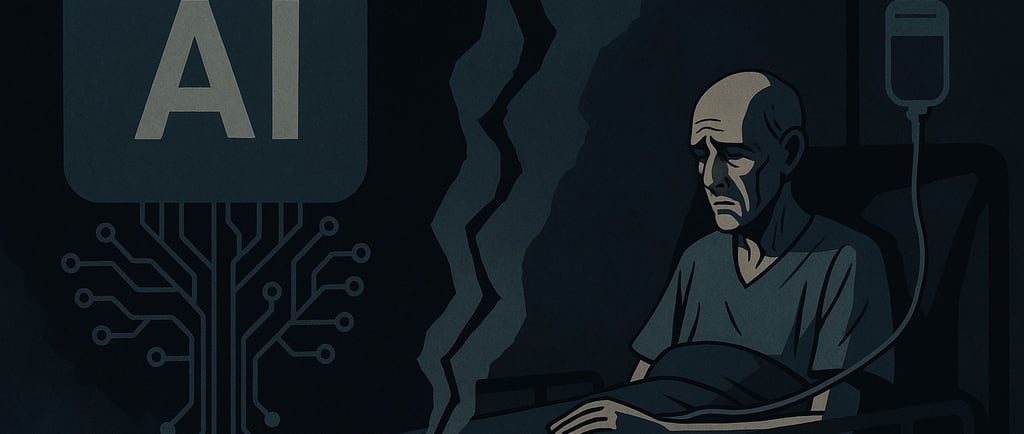AI's Limitations in Predicting Patient Outcomes
A recent study highlights the shortcomings of AI systems in predicting patient deterioration, revealing that many models fail to identify significant health risks. With around 65% of U.S. hospitals utilizing AI-assisted predictive models, these findings raise serious concerns regarding their reliability. The research underscores the necessity of integrating medical knowledge into AI design to improve patient outcomes.
FUTUREUSAGETOOLS
AI Shield Stack
10/23/20252 min read


Recent research published in Nature's Communications Medicine has raised significant concerns about the effectiveness of AI systems in predicting patient outcomes in hospitals. The study revealed that many machine learning models, which are increasingly being integrated into healthcare settings, are falling short in their ability to detect worsening health conditions. Specifically, these models failed to recognize approximately 66% of injuries that could lead to patient death, highlighting a critical gap in their predictive capabilities.
As hospitals continue to adopt AI-assisted predictive models—around 65% of U.S. hospitals reportedly use such systems—the implications of these findings become even more pressing. The primary use of these models has been to chart inpatient health trajectories, yet the lack of sensitivity to potential health deteriorations raises questions about their reliability. This is particularly concerning given that these technologies are often relied upon for making significant medical decisions.
The researchers behind this study examined several widely cited machine learning models designed to forecast patient deterioration. By utilizing publicly available data on patients in intensive care units (ICUs) or those battling cancer, they crafted scenarios to test the models’ predictive accuracy. The results were stark: the in-hospital mortality prediction models could only identify an average of 34% of patient injuries. This stark statistic illustrates the limitations of these AI systems, particularly when they are used in high-stakes environments like hospitals.
Danfeng (Daphne) Yao, a computer science professor at Virginia Tech and co-author of the study, emphasizes the need for a deeper understanding of under what conditions these AI models can perform adequately. She points out that the reliance on purely data-driven training methods is insufficient for the complexities of patient care. Integrating medical knowledge into the development of these AI systems is not just beneficial; it is essential.
The study serves as a critical reminder that while AI has the potential to revolutionize healthcare, it is not a panacea. The incorporation of human expertise and clinical insights into AI development is necessary to enhance its effectiveness. As healthcare continues to evolve with technology, it is vital that we remain vigilant about the limitations of these tools and ensure that they are used responsibly and effectively.
AI Shield Stack (https://www.aishieldstack.com) can assist healthcare organizations in navigating these challenges by providing robust solutions that enhance the reliability of AI applications in patient care.
Cited: https://www.axios.com/2025/03/12/ai-fails-health-predictions-study
